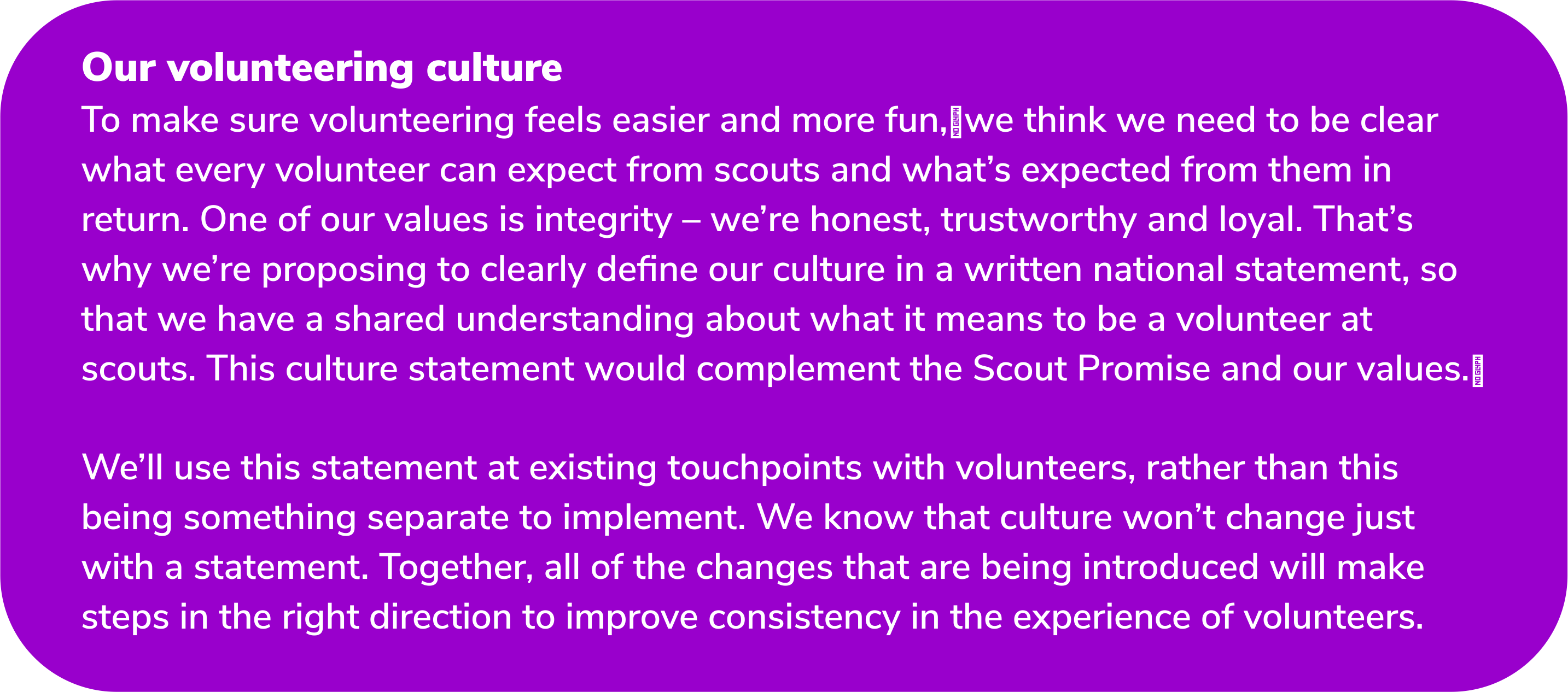Our Volunteer Culture
Why it's important
We understand that creating a positive culture requires attention and care. It doesn’t happen just because we’ve written it down. We bring Our Volunteering Culture to life in the way we behave towards each other: in what we do, what we say and how we say it.
This also means we always need to address when we, and those around us, don’t get things quite right. We do this even when it would be easier to ignore problems.
As role models and champions for our values, when we challenge behaviour that doesn’t align with what we believe, we’re actively creating Our Volunteering Culture.
So, by clearly spelling out the behaviours we expect from one another, we now have a shared understanding and a common frame of reference. This can only make it easier for us all to work together.
What it means for me
If you’re already role modelling the behaviours described in Our Volunteering Culture – then great! Thank you. We want to encourage everyone to continuously revisit the guidance and think about how it can be used in all circumstances, like when new volunteers join us.
If, however, Our Volunteering Culture is not what you’re seeing around you at Scouts. If it doesn’t reflect your experience in the movement, then it’s important to use the guidance to address that too. This could be done by having a conversation directly with the people involved to work out a solution, or to talk with your Team Leader. Your support in challenging behaviours that don’t align with Our Volunteering Culture, will shape how things are done, so that everyone can feel welcome and supported in Scouts.
You’ll find Our Volunteering Culture in several different places, such as in our welcome process, our core learning, and as a key part of how we of work together in our teams. Our Volunteering Culture should help to set the tone at team meetings or when we’re carrying out a review. By continuously revisiting and actively reflecting Our Volunteering Culture, we can all help to keep it relevant (and not just some nice words on the fridge door!).
Our Volunteering Culture is for all of us. It’s so important we all share an understanding of how to behave as volunteers in Scouts. Remember, Lead Volunteers and Team Leaders have an additional role to play, embedding and championing Our Volunteering Culture in the teams they oversee.
What I can do now
Of course, the best place to start is to read and familiarise yourself with Our Volunteering Culture.
The next step is just as important. You then need to reflect on, and engage with Our Volunteering Culture as part of your volunteering experience.
One practical way to do this is by running one or more of the bite sized Our Volunteering Culture activities. These are short and adaptable, and can be done in teams, as well as self-reflection activities.
In fact, we’d encourage all volunteer teams regularly revisit Our Volunteering Culture, both as a reminder and a conscious commitment to making volunteering in Scouts easier, more rewarding and enjoyable for everyone.

